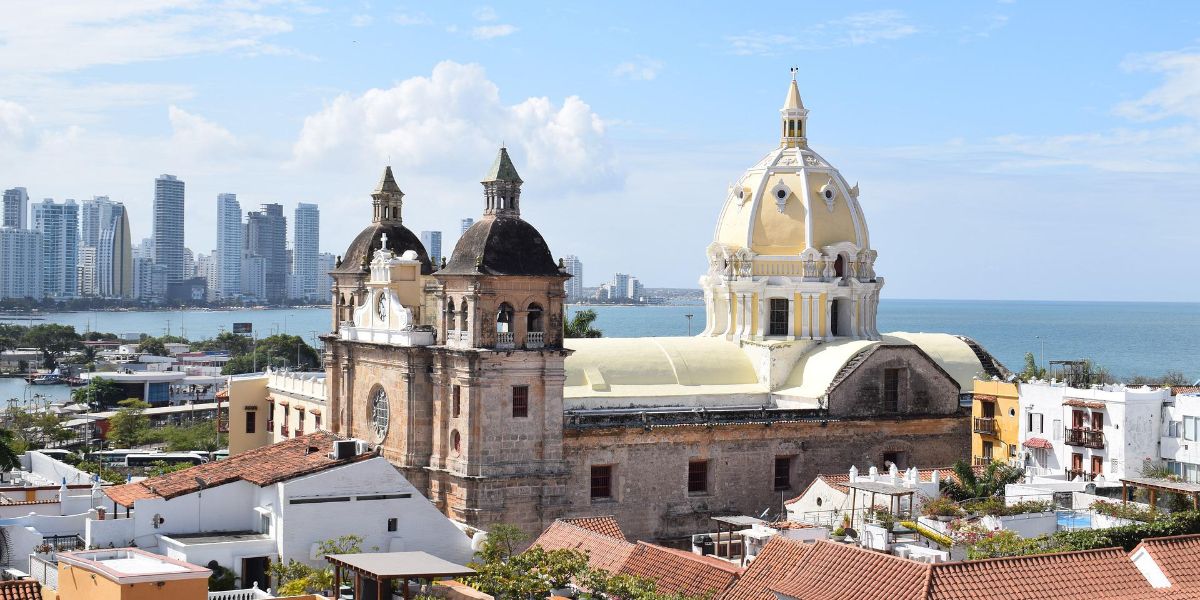Colombia’s tax authority, DIAN, recently issued Ruling 890 on 17 October 2024, offering guidance on several tax matters for non-residents with a significant economic presence (SEP) in Colombia.
Earlier, on 27 November 2023, the Colombian Ministry of Finance issued Decree No. 2039, implementing a regulatory framework for taxing significant economic presence (SEP) under Law 2277 of 2022, which came into force on 1 January 2024. This rule targets nonresident companies that provide digital services or sell goods to Colombian clients.
This new ruling includes responses to several questions, which are as follows:
Q. 1. This question concerns whether a non-resident with SEP in Colombia who is registered in the Single Tax Registry (RUT) as a taxpayer must include in his/her income tax return the income obtained by SEP since January 1 of the taxable year in which he/she registered?
In this case, the ruling states non-resident persons or entities not domiciled in the country with a significant economic presence in Colombia shall be subject to income tax and complementary taxes on income from the sale of goods and/or provision of services to clients and/or users located in the national territory. To pay this tax, the non-resident or non-domiciled person in the country with SEP may choose between (i) declaring and paying the income tax and complementary taxes through the form prescribed for this purpose or (ii) paying the tax through withholding at source as income tax.
Taxpayers with SEP who choose bi-monthly advance tax payments and annual returns must file their annual return by the 14th business day of April, starting in April 2025. They are required to declare all income earned by the SEP from 1 January of the taxable year in which they registered as taxpayers.
Q.2. The second question concerns whether non-resident persons or entities not domiciled in the country with SEP but registered in the RUT as income taxpayers should make the advance payments.
In this context, the ruling specifies that registered non-residents with a Significant Economic Presence (SEP) must begin making advance payments upon registration, adhering to the specified deadlines:
| Taxable period | Deadlines |
| January – February | 10th business day of March of each year |
| March – April | 10th business day of May of each year |
| May – June | 10th business day of July of each year |
| July – August | 10th business day of September of each year |
| September – October | 10th business day of November of each year |
| November – December | 10th business day of January of the following year |
Q.3. The third question asks a non-resident person or entity not domiciled in the country with SEP registered in the RUT as a taxpayer. Still, before registration, the withholding at source was applied. In this case, will these withholdings at source be requested against the tax to be settled in the income tax declaration?
In this context, an earlier ruling is referenced, which clarifies that the procedures for requesting compensation or a refund can offset the withheld tax.
Q.4. The fourth question concerns a non-resident person or entity not domiciled in the country with SEP registered in the RUT as a taxpayer must submit and pay the bi-monthly advances if they also opt to have tax withheld at source.
In this context, If a non-resident person or an entity not domiciled with SEP in Colombia registered in the RUT as a declarant of income tax and complementary taxes opted to apply withholding at source, they will not be required to file or pay the bi-monthly advance payment.
Q.5. The fifth question concerns the timing or when a non-resident person or an entity not domiciled with SEP in Colombia should be registered in the RUT as a taxpayer recognises income from the SEP.
In this regard, the ruling provides the recognition of income by a non-resident person or an entity not domiciled with SEP in Colombia registered in the RUT as a declarant of income and complementary taxes, which will depend on whether or not the taxpayer keeps accounting records.
Suppose the non-resident person or entity not domiciled with SEP keeps accounting records. In that case, the income generated for tax purposes is the income accrued for accounting purposes in the taxable year or period. Without accounting records, income is deemed earned when received in cash or in kind.
Q.6. The sixth question concerns how cancelled, rescinded, or resolved transactions are recognized in the bi-monthly advances and in the income tax return filed by a non-resident person or an entity not domiciled with SEP in Colombia.
The ruling states that gross income, including all ordinary and extraordinary income, must be considered for advance payments and annual returns. Taxpayers must assess if income from cancelled or rescinded transactions is realised and if their assets are increased. Unrealised income should not be considered when calculating income tax.














